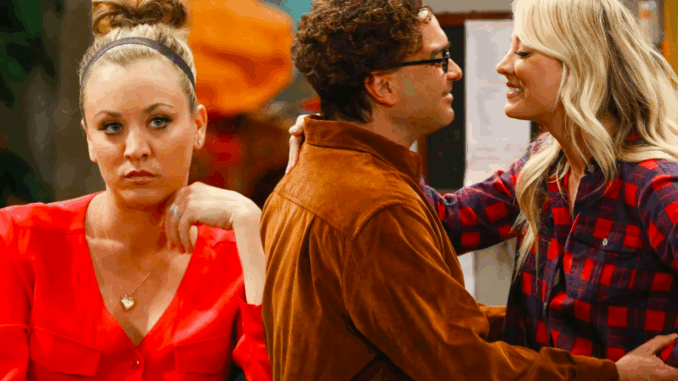
Introduction When audiences first met Penny in the pilot episode of The Big Bang Theory, she was the charming, confident aspiring actress from Omaha who moved in across the hall from two brilliant but socially awkward physicists. Played by Kaley Cuoco, Penny was the quintessential “girl next door” whose presence would change the dynamics of the show forever. Over twelve seasons, Penny grew into one of the most beloved characters in the series. But for all her charm and relatability, her role within the show was a complicated one, often torn between empowerment and stereotype.
This article explores the duality of Penny’s character — how she represented a progressive force in a male-dominated environment, while simultaneously being restricted by outdated sitcom tropes. It dives into how Kaley Cuoco brought nuance to a role that could have easily been one-dimensional, and what her character ultimately says about the portrayal of women in television.
Penny as the Everywoman in a World of Geniuses In a sitcom revolving around highly educated men, Penny was introduced as the outsider with street smarts, emotional intelligence, and social confidence. While Leonard, Sheldon, Raj, and Howard often fumbled through social interactions, Penny served as the bridge to the real world. Her character helped highlight the absurdities of the group’s behaviors and became a vital counterpart to their overly intellectual banter.
But Penny was more than just the group’s moral compass. Over the seasons, she held her ground in debates, defended her choices, and slowly moved up from struggling waitress to successful pharmaceutical sales rep. Her transformation, while subtle, showed a woman figuring out her career and independence on her own terms.
The Burden of the “Hot Girl” Trope Despite her depth, Penny’s character was often undermined by how the show leaned into her physical appearance. Early episodes routinely featured jokes at the expense of her intellect, contrasting her looks with the nerdy guys’ brains. She was frequently portrayed as sexually experienced and naive, a combination that fueled much of the show’s early humor.
Many fans and critics noted how the writing often reduced Penny to a plot device for the male characters’ development. Whether it was being the object of Leonard’s affections or a test of Sheldon’s boundaries, she was rarely given space to grow on her own. In several instances, her past relationships were used to shame her, and she was written to feel inadequate for not having a college degree.

Kaley Cuoco’s Impact and Subtle Rebellions Kaley Cuoco deserves credit for elevating Penny beyond the script’s limitations. Through body language, delivery, and subtle emotional beats, she brought warmth and complexity to the role. Her comedic timing helped balance the heavier themes, and her chemistry with the rest of the cast made Penny feel like a vital part of the ensemble.
Cuoco also reportedly pushed back against certain lines or portrayals she felt were out of character. Over time, the show gave Penny more grounded moments: navigating financial stress, confronting her fear of commitment, and showing ambition in her new career. By the final seasons, she became less of a fantasy figure and more of a fully realized woman.
A Complicated Legacy Penny’s role in The Big Bang Theory leaves behind a complicated legacy. On one hand, she represents a woman breaking into a space traditionally dominated by men, holding her own and calling out absurdity when needed. On the other, she remained boxed in by the genre’s reliance on easy jokes about beauty and intelligence.
Her character arc reflects broader patterns in television: the push and pull between evolving social awareness and lingering stereotypes. Penny started as a trope, but through Cuoco’s performance and fan investment, she evolved into something more meaningful. Still, it’s hard to ignore how long the show took to let her grow.
Conclusion Penny wasn’t perfect, but she was real. Her contradictions made her relatable to many viewers who saw themselves in her uncertainties and triumphs. In a show about physics, formulas, and science fiction, she brought the human touch. And perhaps that’s her greatest contribution: reminding us that intelligence takes many forms, and that being the “normal” one in a room full of geniuses is sometimes the most difficult role of all.